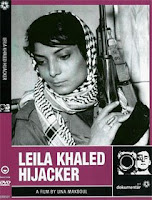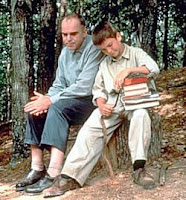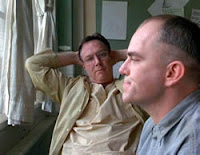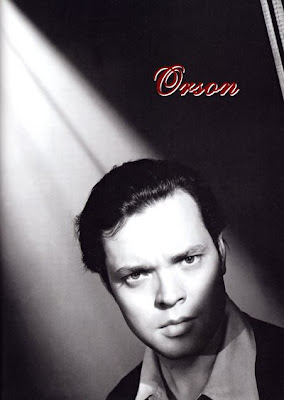HUMAN RIGHTS FILM FESTIVAL
02.08.2008 & 03.08.2008 5 pm to 8.30 pm
Ashwin Hospital Auditorium
PUCL Coimbatore and BREAKTHROUGH New Delhi
HUMAN RIGHTS IN FRAMES
Six award winning documentary / short films

Director : Tonje Hessen Schei
Iraq/Norway/USA - 75 mins
Independent Intervention is an award-winning documentary about the US Media coverage of the war in Iraq. Focusing on the human costs of war, it contrasts the mass media's coverage of the invasion of Iraq with independent reports of the brutal realities on the ground. Following a Norwegian filmmaker in the United States who questions how the US media covers the war in Iraq, the film brings awareness to the disparity between the war the American people see through the corporate controlled media and the realities on the ground in Iraq. Independent Intervention explores how the growing media democracy movement in the US works to challenge the mass media.
It’s Always Late For Freedom

Director: Mehrdad Oskouei
Iran – 58mins
The film depicts the life of three teenager boys in Tehran House of Correction. They are the innocent victims of the serious social problems such as addiction, poverty and divorce, which the Iranian society is faced with.
The Women's Kingdom

Director: Xiaoli Zhou
China/USA 22.14 mins
Keepers of one of the last matriarchal societies in the world, Mosuo women live beyond the strictures of mainstream Chinese culture. This short documentary offers a rare glimpse into a society virtually unheard of 10 years ago and now often misrepresented in the media. Mosuo women control their own finances and do not marry or live with partners; they practice what they call "walking marriage." While tourism has brought wealth and 21st century conveniences to this remote area, it has also introduced difficult challenges to the culture—from pollution and the establishment of brothels, to mainstream ideas about women, beauty, and family. This finely wrought documentary is a sensitive portrayal of extraordinary women struggling to hold on to their extraordinary society.
I Want to Be a Pilot

Director: Diego Quemada Diaz
Kenya/Mexico/Spain 12 mins
Deep in the slums of East Africa, a twelve-year-old has only one dream: to be able to fly. This moving film is about a poverty stricken boy in one of the poorest parts of Kenya who looks up towards the heavens and dreams of being an airline pilot. Omondi is a young orphan trapped in the East African slum of Kiberia. In this dramatic short, the director, Diego Quemada-Diaz, spotlights his wish of piloting the plane that will take him away from his bleak life of poverty.
LEILA KHALED HIJACKER

Director: Lina Makboul Sweden | 2005
Arabic & Swedish with English subtitles | 58 mins
Sitting in the departure lounge at the Leonardo da Vinci Airport in Rome she looked like a stylish lady. No one would have guessed what she was about to do. She had bought the white dress a couple of days earlier in the exclusive shop by the Spanish steps to match her handbag and her white sun hat. She held her handbag tight. It was only a couple of minutes before the departure of flight TWA 840. She had just met her fellow hijacker, Salim, for the first time a couple of hours earlier. They had first class tickets. The gun hurt her hip. She had taped it inside her panties. It was August 29, 1969 and TWA flight 840 had just taken off. The destination was Tel Aviv, Israel. A short while later she left her seat, threatened the crew with hand grenades and entered the cockpit. She took hold of the microphone announcing, "Ladies and gentlemen, your attention please, kindly fasten your seat belts. This is your new Captain speaking. The Che Guevara commando unit of the Popular Front for the Liberation of Palestine..." Twenty-four year old Leila Khaled had just completed her first hijacking and became the first woman ever to hijack an airplane. One year later, she did it again. Leila Khaled Hijacker tells the story of who she is and what made her become a freedom fighter to some and a terrorist to others.
The Hands of Che Guevara

Director: Peter De Kock
The Netherlands 62 mins
The documentary is a search for the severed and missing hands of Che Guevara. The search reveals a number of remarkable people: men and women who were prepared to risk their lives to recover two hands. Through their testimonies and anecdotes a story unfolds—a tale so bizarre and secret that it was banished to the shadow world of history. By stringing together the small, subjective stories of each person involved, slowly a larger, ‘objective’ history becomes visible.
Although some stories have been spectacularly embellished, they form a human memory-chain till the present time.


Click here to Learn more about Human Rights ....
Click here to learn about People's Union for Civil liberties
Click here for . . Human Rights Act 1993




















